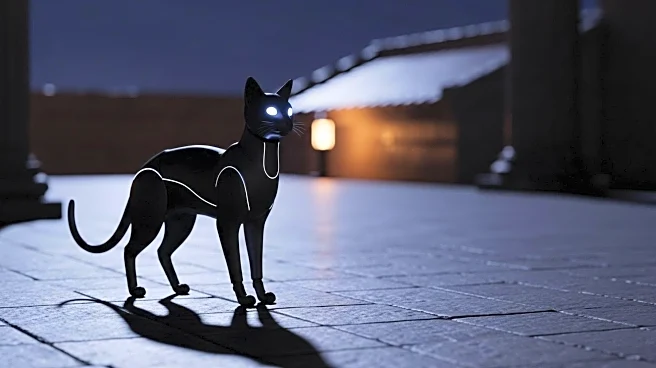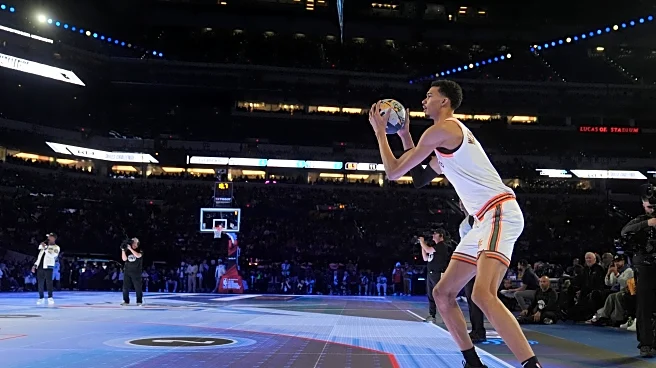What's Happening?
Ubisoft has immortalized a fan's beloved pet cat, Olive, as a digital companion in the game Assassin's Creed Shadows. Olive, owned by YouTuber Ropotopolous, is featured in the game dressed in Renaissance Assassin robes, similar to the YouTuber's channel icon. The inclusion of Olive was part of a recent update that also introduced the game's first expansion, Claws of Awaji. Players can find Olive in the game by solving a riddle, and once located, Olive can be added to the player's hideout as a digital companion. This marks a unique achievement for Ropotopolous, who expressed his excitement about Olive's inclusion in his favorite video game series.
Why It's Important?
The addition of Olive as a digital companion in Assassin's Creed Shadows highlights the growing trend of personalized gaming experiences. By incorporating elements that resonate with fans, Ubisoft strengthens its community engagement and enhances player loyalty. This move reflects the broader industry shift towards interactive and personalized content, which can lead to increased player retention and satisfaction. For Ubisoft, this strategy not only boosts the game's appeal but also fosters a deeper connection with its audience, potentially influencing future game development and marketing strategies.
What's Next?
Ubisoft plans to make Olive accessible to all players in an upcoming patch, expanding her availability beyond the Claws of Awaji expansion. This decision could lead to further collaborations with fans, encouraging community involvement in game development. As gaming companies continue to explore personalized content, similar initiatives may become more common, potentially setting a precedent for fan engagement in the industry.
Beyond the Headlines
The inclusion of Olive in Assassin's Creed Shadows raises questions about the ethical implications of digital immortality for pets and personal icons. As technology advances, the line between reality and digital representation blurs, prompting discussions on the cultural impact of such integrations. This development may influence how society perceives digital legacy and the preservation of personal memories in virtual spaces.











